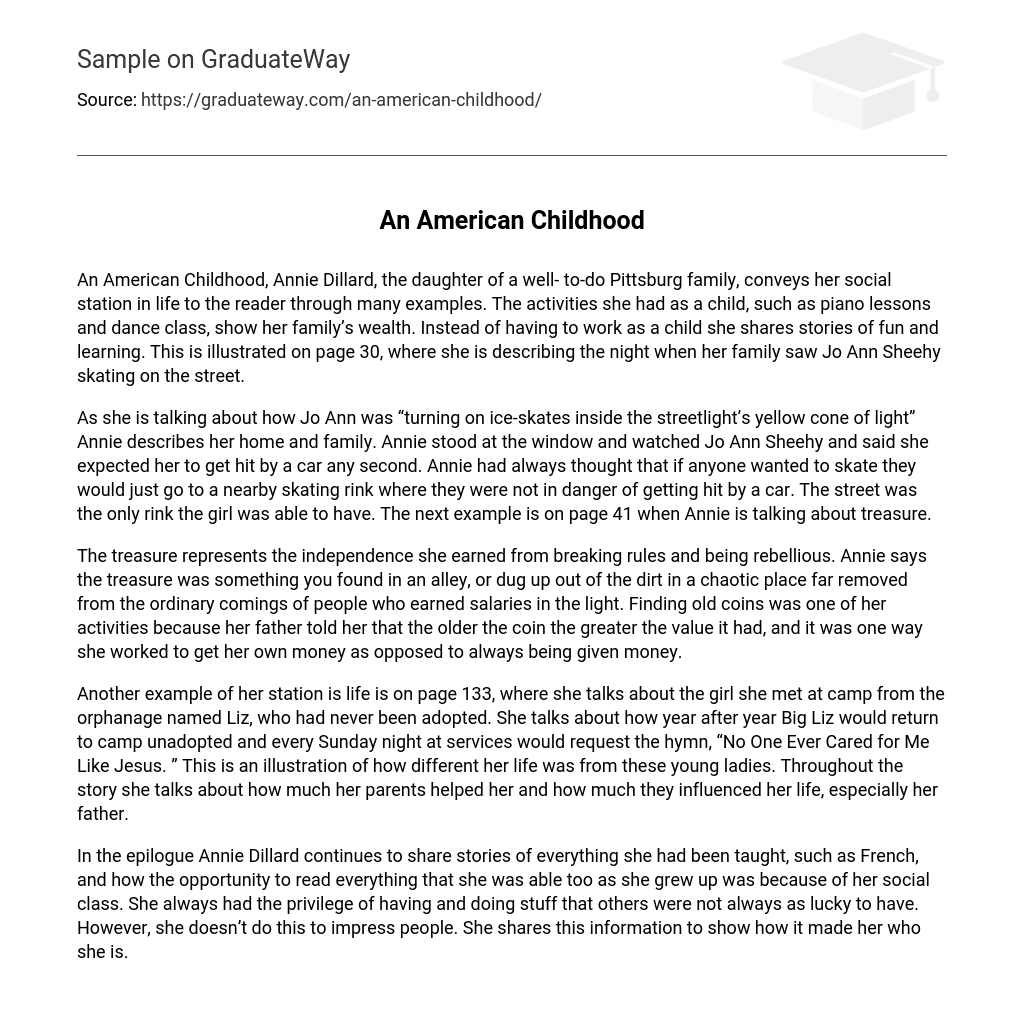Annie Dillard, in her book “An American Childhood”, showcases her privileged upbringing through various instances. Examples of her family’s affluence include her extracurricular activities like piano lessons and dance classes. Instead of being burdened with responsibilities at a young age, she reminisces about enjoyable and educational experiences. One such instance is documented on page 30, where she recounts the night her family witnessed Jo Ann Sheehy skating on the street.
Annie shares about Jo Ann Sheehy gracefully gliding on ice-skates within the warm glow of the streetlight. Annie observes Jo Ann from her window and anticipates a potential car accident. Annie has always believed that for ice-skating, one should visit a safe skating rink nearby instead of risking their lives on the streets. However, the street acts as the only available rink for this girl. Another instance can be found on page 41 as Annie discusses treasure.
The treasure symbolizes the freedom she gained by disregarding rules and being defiant. Annie describes the treasure as something discovered in an alley or unearthed from a disorderly place far from the usual hustle and bustle of those earning regular salaries. Collecting old coins was among her pursuits, influenced by her father who taught her that the older the coin, the more valuable it became. This was a means for her to earn her own money instead of always being handed it.
Page 133 introduces another example that illustrates her social standing. She recounts a story about meeting Liz, who grew up in an orphanage and never found a family. Despite returning to camp each year without being adopted, Liz would consistently request to sing the hymn “No One Ever Cared for Me Like Jesus” during Sunday night services. This anecdote emphasizes the stark difference between her own privileged life and the circumstances of these young girls. Throughout the narrative, she highlights the significant influence her parents, particularly her father, had in shaping her life.
In the epilogue, Annie Dillard contemplates the knowledge gained from learning French and acknowledges that her privileged social status granted her exposure to a wide variety of literature. She appreciates the fortunate circumstances that allowed her access to things that others may not have had. It is important to note that she shares this insight not seeking admiration but rather to emphasize its impact on shaping her identity.





